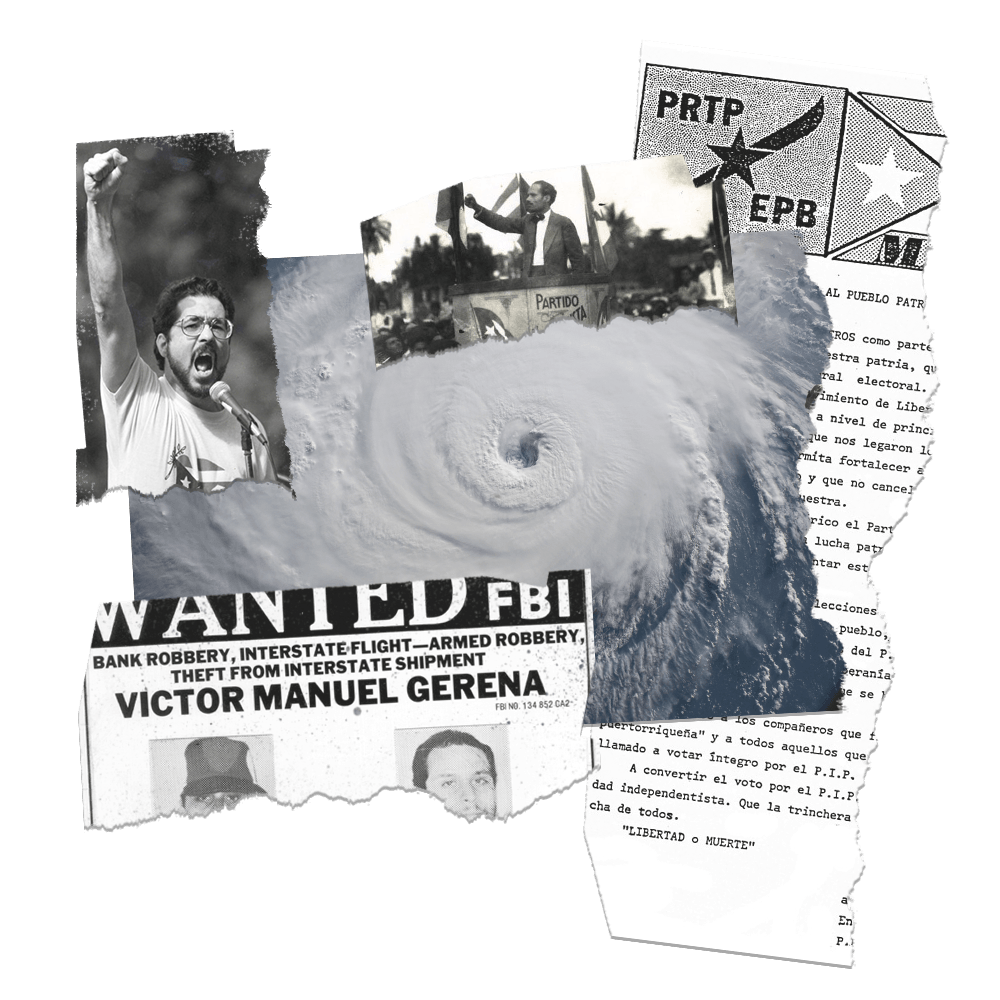SYNOPSIS
The Last American Colony is a compelling and revealing story of an invisible island -- Puerto Rico. It is told through the eyes of Juan Segarra, a Harvard educated man who having become acquainted with the history of his island home and its relationship to the United States chooses to embrace the independence movement and becomes a member of Los Macheteros, a group dedicated to achieving its goals through armed struggle.
Segarra’s personal narrative is an awakening to the reality his homeland is an American colony with a century long history of Puerto Ricans struggling to retain their cultural identity and regain control of the island’s destiny. The film opens in the aftermath of Hurricane Maria revealing the painful and deadly consequences Puerto Ricans have faced for decades.
Throughout the film, historical moments of resistance are woven into the narrative structure providing evidence of the past as a mirror for today. Segarra’s participation in the clandestine operations of the movement are revealed with intimate detail as he becomes the lieutenant to commandant Filiberto Ojeda Rios. These ‘acts of war’ against the US in the late 70’s and early 80’s includes the destruction of 10 US military planes at the National Guard runway in San Juan and the enormous heist of 7.2 million dollars from a Welles Fargo depot in Hartford, Connecticut. For more than a decade the FBI was unable to trace the activities of Los Macheteros who have been labeled domestic terrorists.
Their fight for independence is a desire to rid the island of dependence on the US. It has evolved from decades of economic and political inequality where many perceive the only benefit of life as a colonial resident since 1917 is US citizenship. It is a qualified benefit as one cannot vote for President, have a representative congressman or senator, but can be drafted into the military.
The Last American Colony is a thought provoking and uplifting film in that it portrays a David and Goliath story through the eyes of those who fought and sacrificed everything for freedom. Juan Segarra’s belief in the struggle remains firm although he has spent more than 18 years in prison for his illegal actions. His focus today is on different tactics renouncing an armed propaganda strategy while still working for independence; his new career is that of a translator working in the Puerto Rican criminal justice system.
As he concludes the film with sharing personal stories at his Phillips Andover 50th reunion, Segarra says, “Nonviolent resistance and civil disobedience are important tools as are many others. Maybe there should be more of it. It’s looking like these times call for urgent action. Clearly, I think violence is not the way to go and is in fact counterproductive. It kind of feeds into what - for lack of a better word – the system really wants.”
